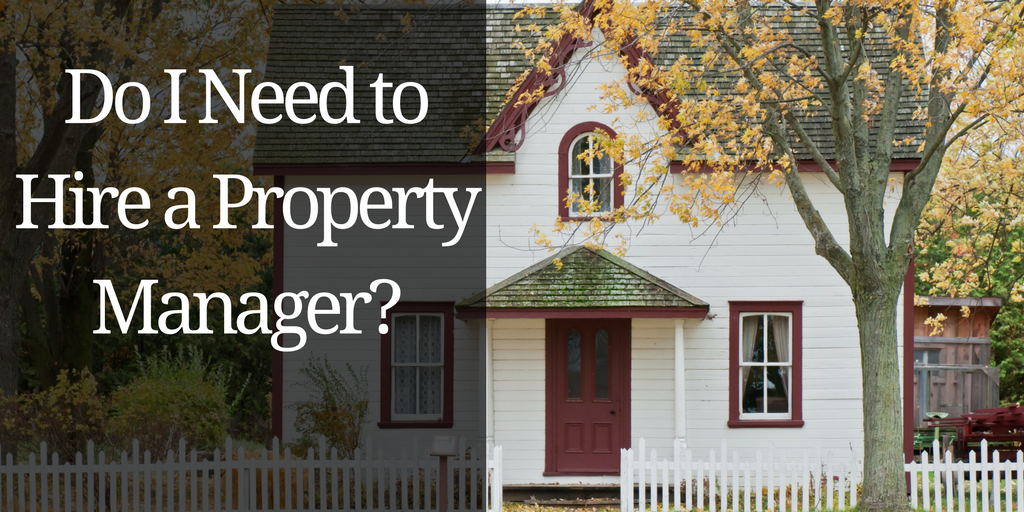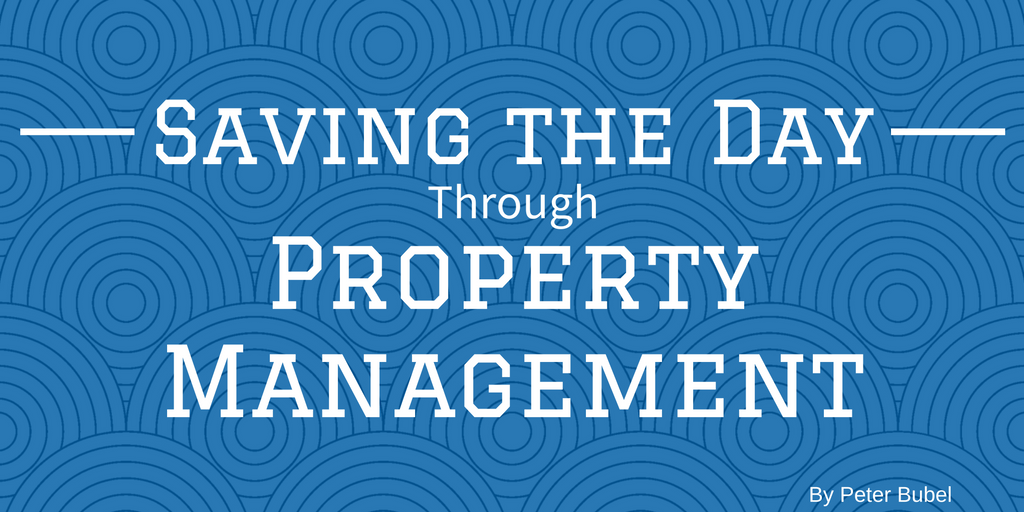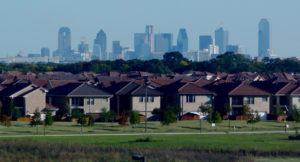
Peter Bubel+ by | Jan 3, 2017 | Peter Bubel, Property, Property Management, Real Estate
Owning property can be a goldmine, but it can also be a hassle, especially for anyone with obligations exceeding duties as a landlord. And when you add multiple properties into the mix, maintaining an accurate gauge on rent payments, late fees, complaints, repairs, new tenant prep and more can get very sticky, very quick, even for the most veteran of landlords. To help, I’ve summarized a few reasons why it might be wise for landlords to look into locating a good property manager to mitigate the responsibilities of leasing property.
You will free up time
As a manager and founder of PANA rentals, I regularly oversee anywhere from 50 to 100 properties, many of which are low income or student housing. I’ve often heard firsthand from clients regarding the burdens on time and freedom that accompany being a landlord. I’ve heard clients tell of their responsibility for older relatives, or children who constantly need care; sometimes these clients are simply unable to work in the additional hours which being a landlord demands. We are living, thinking, caring people, and precious little is as valuable as our time.
Anyone can dream of reaping maximum benefits with minimum time constraint. Purchasing and leasing real estate is one of the most efficient methods of achieving some financial breathing room, provided you find yourself a decent property manager to clear the air of unnecessary hindrances on your time and peace of mind.
You will get more/better tenants
Good property managers know how to draw interest through marketing campaigns using all available resources, techniques and industry connections, strategies which generate a larger, healthier prospective tenant base. Highly developed screening processes also allow property managers to choose tenants who possess qualities which the landlord feels are ideal, such as keeping noise down at night, or being employed. Property managers also provide a barrier of professionalism by handling tenant interaction, which separates landlords from the painful and difficult decisions that can occasionally spring from becoming too personally involved in tenants’ lives.
You won’t have to worry about constantly traveling to and from properties
Whether due to damage, decay or negligence, issues with property are a given for owners, and being a landlord without a manager means you’ll have to be present whenever a problem needs solving. Living within feasible driving range becomes a necessity, unless, of course, you hire a property manager to act in your stead.
You can make money regardless of whether you have previous property management experience
There is no limit or minimum amount of control that must be ceded to a property manager. Both longtime landlords and novice property owners are able to maintain a level of involvement in the management process completely suited to their personal preference, meaning anyone can profit, no matter their current experience level.

Peter Bubel+ by | Dec 6, 2016 | Blog, Peter Bubel, Property, Property Management, Real Estate
For those looking to increase their wealth through investment, there are two basic investment types to make: investing in stock or investing in real estate. While each method has been proven effective, real estate investment is a highly lucrative game that could end up making you rich in the long run — of the 1,810 billionaires living today, 163 of them, or 9%, got their start in real estate, making the industry the third-largest source of wealth. However, real estate investment isn’t for everyone. Take a look at the pros and cons of investing in real estate before deciding if it’s the right investment method for you.
Pros:
-
The investment is physical.
Believe it or not, this is actually a huge deciding factor for many people when choosing how to invest their money. While investing in the stock market is also a great way to make money, for many people the main turn off is the way you can have money one minute and lose it the next. With real estate, this isn’t a concern. Your piece of land, your investment, is one you can reach out, touch, and even stand on. While money can come and go, your property investment will always remain.
-
You are in control of your investment.
With each new property that you purchase, you essentially become the owner and CEO of your own small company for which you’re in charge of hiring (renting), maintenance (general upkeep), and growth (additions and renovations). By making renovations to improve the house, like a bathroom or kitchen remodel, you’re increasing the value of your investment, something you can’t do with stock investments.
-
Real estate is a relatively stable investment.
When you invest in real estate, there is very little — if any — fluctuation that occurs in terms of value. While stock prices can double and halve in mere hours, real estate offers a stable alternative for investment for those who aren’t looking for the stressful ups and downs of stock market investment.
Cons:
-
The investment is illiquid.
One of the major cons that deters people from investing in real estate is how illiquid — or how difficult to convert from asset to cash — the investment is. Where buying and selling stocks can be completed in a matter of seconds, selling a piece of property can take weeks or even months for proper paperwork to be signed, payments to go through, and sales to be finalized. So while real estate is a far more stable investment,
-
It requires a lot of work.
Where stocks are easy in that, once you invest in them, your work is primarily done, real estate investments require a lot of work to be put into them for you to see substantial returns. Often times, people choose to hire property managers who act as the middleman and take the burden of maintenance off of the shoulders of the landlord, but if you don’t then you’re looking at fixing minor repairs as they arise, maintaining the property, finding your own tenants, and enforcing the lease on your own.
-
If you can’t find tenants, you’re paying for your investment.
Another huge con of real estate investment is that you need other people to make your investment profitable. If you’ve purchased a rental property, you’ll need tenants to occupy the building or else you’ll end up losing money each month as you pay for mortgage, utilities, and general upkeep.

Peter Bubel+ by | Dec 6, 2016 | Blog, Peter Bubel, Property, Real Estate, Travel
In the dead of winter, it’s tempting to sell off everything you own to move to a tropical, exotic location whose atmosphere is a complete 180 from where you are now. Unfortunately, with exotic travel destinations often comes exorbitant price tags, and unless selling everything you own is a viable option, you’re going to need to find an alternative. Skip on the international plane fare and take a trip to an exotic land right in your own backyard; visit these hidden travel gems you can find right here in America.
This scenic, glacial California valley is home to a number beautiful sites. Measuring 8 miles long, the valley is chock full of trails for hikers and explorers, and is a hotspot for photographers as well; when the sunlight hits just right, some falls refract the light into beautiful rainbows that will take your breath away.
Founded way back in 1565, this beautiful holds claim to being the oldest city in the United States. It was founded by Spanish admiral Pedro Menéndez Avilés, and remains heavily influenced by Spanish culture today. Walk along the historic streets, and bask under buildings that existed long before this country did.
While it’s not in the continental U.S., Hawaii offers many beautiful sites for visitors to take in, and it’s least developed island is no exception. Also referred to as “the Garden Isle,” this beautiful island is a popular place to visit for those looking to get away from society and experience raw, beautiful nature. The lush, tropical rainforest that covers most of the island gives the feel of being in the Amazon without ever leaving the country.
-
Joshua Tree National Park, Ca.
If you’re looking for an otherworldly travel destination with the price tag of a local vacation, then look no further than California. The park sees two different types of desert ecosystem converge where the Mojave desert meets the Colorado desert, with a landscape that could be from another planet; large rock formation, vast desert scapes, and strange, barren plant life render this desert an alien planet. When you’re ready to head back to civilization, stop by the village of Joshua Tree and experience first hand the wide range of inhabitants and food the area has to offer.
If you’re dreaming of the wineries of Italy but know the Mediterranean is out of your price range, your next best bet is to visit the lush vineyards and rolling hills of Napa Valley. Colloquially known as “wine country,” this area was originally settled during the silver rush of California and is now renowned as the wine capital of California.

Peter Bubel+ by | Nov 2, 2016 | Peter Bubel, Property, Property Management, Real Estate
In today’s world, people want three things- time, money, and happiness. Unfortunately, we can’t always get what we wish for, but we can work towards making choices that will help effectively manage our lives. Today, the housing market is a popular form of investing, but many people keep the burden of owning a property without help, creating a high level of stress, too much time wasted, and more money being spent on things that typically shouldn’t be. Property management (PM) is a crucial way for to people to successfully invest in properties without having to deal with the inconvenient headaches that go along with being a landlord. If you’re looking for a stress-free lifestyle, here’s a look at why you should hire a property management company today.
Maintaining a Property
The most important responsibility of a property manager is right in the name. They manage your property. Owning properties with tenants come with great responsibilities, such as managing the the property to ensure the tenants have a good home to live in. Property managers take on the responsibilities of making sure everything on the property is up to date and complies with the laws and regulations of creating a property into a rental. PM’s are also responsible for taking care of the needs a property (or tenant) may need. For example, if something is broken within the property, or there is a property emergency, the first person of contact to resolve the issue in the PM, so you don’t have to deal with the problem. Most property managers also provide some type of strategy for security. This will contribute to tenants feeling more comfortable in the property, while taking the steps towards prevention of problems and insecurities from outsiders.
Background Checks and Payments
One of the biggest issues landlords face with tenants is the lack of background checks and screenings. This issue leads to problems such as late (or no) rental payments, damages, and overall complaints, all of which can be prevented. Property managers take the steps to ensure that background checks and screenings are properly performed to learn more about the tenant’s past history with rentals and payments. Property managers also have strategic systems for you to receive rental payments on time and in full. As a liaison between you and your tenant, you can confidently know your expected monthly income from your properties.
Marketing and Rent Pricing
In order for you to make an income off your investments on a monthly basis, it’s important that your property doesn’t sit empty for months at a time. Property managers put a great focus on finding tenants for your property through a strategic marketing process. They also work with you to determine the right rental price for your property. Through the use of the internet, it is easy for tenants to see which properties are priced too high, so you want to ensure that your rental prices are at the current market value in order to stay competitive.
Inspection Reports and Book Keeping
Another nice tasks that property managers take on is inspecting the properties before, during, and after the tenant occupies the space, providing you with updated reports. PM’s are also able to help you when it comes to filing your taxes. They’ll provide you with bookkeeping materials that will help you understand what you can claim and deduct for your investments. This way you won’t have to do much math or worry about where your property stands.
More freedom for you
Overall, there are not many downsides to hiring a property management company. Many landlords overlook the idea of hiring a property manager because they think they can’t afford it. However, property managers don’t charge as much as you may think. It’s important to do your research and talk to multiple companies to get estimates. Having a property manager allows you gives you the freedom to live wherever and do whatever you want, knowing that your investments are in good hands.

Peter Bubel+ by | Oct 4, 2016 | Peter Bubel, Property, Real Estate
One of the most popular industries in today’s world is real estate. While many people continue to debate the future of the field, it is important to keep up to date with the latest trends as the industry has greatly changed over the years. With many more competitors and the growth of technology, it is important to keep up with the trends for the future. Here is a look at trends in real estate that are important to keep up with for the future.
- Rent
Real estate firms have been around for a long time. According to the Atlanta Agent, 48% of real estate firms have been around for more than 15 years. Many millennials found that they simply can’t afford to purchase housing, so they would rather rent. Other studies have shown that millennials would rather rent housing to “live in the moment” and spend money on experiences, such as travel, instead of buying homes. Through this, revenue in the housing market is expanding because the cost of living is going up. Therefore many people have no choice but to spend month-to-month money on rent. With millennials being the largest generation living today, it is important for real estate firms to shift their perception of buying trends and focus on the way millennials are approaching real estate.
- Buy
Of those who can afford to purchase housing, many are seeing the trends in the increase number of rentals to invest in real estate. The growing population in the world has caused a demand for not only housing, but also vacation rentals. Some studies found that millennials would rather rent than buy housing, creating a revenue of over $300 billion dollars by 2025. This creates a lot of revenue for companies such as AirBnB and independently owned housing businesses who rent out the properties. Many people decide to rent out their homes instead of selling them, creating a demand for more housing for those looking to buy.

Since millennials are placing less importance on owning property, semi-burbs are sprouting up that provide the convenience of residence without all of the property and expenses
- Semi-burbs
According to consumer reports, many millennials are interested in living in enclosed suburbs that offer a community, while still having a sense of city-feel. These developments are much more affordable than buying a single-home property, and have become increasingly popular amongst rural communities. Studies have shown that millennials aren’t spending enough money on “stuff” including space and property. The older generation also relies on a sense of community to help with their needs and life changes as they grow older.
- Affordable Housing
Many buyers are hoping to help the community through their housing investments. The United States is in a housing crisis, and according to the U.S. Department of Housing and Urban Development, families that pay more than 30% of their income for housing are considered cost burdened. As rent increases, paychecks don’t, therefore people are having problems paying their other bills as well.
- Mortgages
Many buy assistance programs and local nonprofits are working together with the government to help potential buyers put a downpayment on their homes. Most people find that the hardest part about buying a home is not the monthly payment, but the down payment due at signing. This is why many people consider buying a home unaffordable. This is allowing many people to buy homes and create new ones for others.
- Technology
As technology continues to increase in all industries, real estate is one of the most rapid. Many people are able to buy homes without even looking at them in person. Documents can be signed on the internet, and transactions overall are a lot faster. People are not only able to look up homes on sites such as ZIllow and Trulia, but are also able to buy homes through online agents, such as Ten-X. For agents, this means keeping up with the latest social media and technology trends to keep up with business.

As companies grow, they require more area for office space, increasing their footprint.
- Business
As businesses increase, so does office footprint. The employment rate has been rapidly increasing every years, allowing more businesses to expand their spaces and buy/build new buildings. This trend has allowed the real estate industry to grow as well. As more businesses are hiring, and people are getting paychecks, there is a sense of optimism and more opportunity for buying/renting property.
- Environmental Impacts
According to the World Economic Forum, the real estate industry “uses over 40% of global energy annually,” and “20% of global greenhouse gas emissions come from buildings, and are expected to increase building CO2 emissions by 2030.” The real estate industry has been working at its hardest peak in taking a stand against global warming and environmental impacts.
- Network
Most real estate firms do not offer benefits such as health insurance, savings plans, liability insurance, and sick/vacation days. Most are also paid on a 100% commision basis. Because agents mainly gain their clients through referrals and social media, it is important for them to network and establish as many relationships as possible in order to be successful in their fields. This trend is allowing more agents to work on their own time and schedules, while keeping up with the latest networking and social media trends.
- Expectations
Although the cost of living costs has increased, there is still reason to be optimistic. While more businesses are expanding and people are getting jobs, they are also able to spend money on things such as property, vacation homes, and travel. There will always be a need for housing, but it’s important to keep up with the latest trends, such as millennial spending power, cost of living costs, and rural developments.

Peter Bubel+ by | Aug 31, 2016 | Peter Bubel, Property, Real Estate
Click here to view this post as a SlideShare.
When you’re scouting areas in which to live, one of the biggest factors people take into consideration is the cost of living. Many people flock to New York, San Francisco, and Washington D.C. for their vibrant culture and endless social happenings, but they have the three highest costs of living in the United State, respectively. So how can you find somewhere to live that won’t break the bank, but still provide you with entertainment and social activities? Take a look at the top ten cities to live in that won’t break the bank.
- Fayetteville, Arkansas – Ranked #3 of the Best Places to Live 2016, Fayetteville has a population of 483,396 making it the third-largest city in Arkansas. There you can visit the Clinton House and the Prairie Grove Battlefield State Park, as well as the University of Arkansas. It costs $177,200 on average to purchase a home, and the average salary earned in the city is $42,410.
- Des Moines, Iowa – Des Moines is both the largest and the capital city of Iowa and has a population of 590,741. Home to Drake and Des Moines Universities as well as the Blank Park Zoo, it costs about $169,550 to purchase a home, with an average annual salary of $46,600.
- Baton Rouge, Louisiana – Baton Rouge is the capital city of Louisiana with a population of 814,805 which makes it the second-largest city in the state. It’s home to Louisiana State University and various points of interest, including the Baton Rouge Zoo. On average, a home costs $147,000, and the mean salary is about $42,650.

Little Rock is the capital of Arkansas and the largest city with a population of about 717,000
- Little Rock, Arkansas – Little Rock is both the capital city and the largest city in Arkansas with a population of about 717,000. Along with the University of Arkansas, Little Rock is home to the Clinton Presidential Center and the Arkansas Arts Center. You can buy a home here for an average cost of $147,750, and you can earn an average salary of $42,000.
- Indianapolis, Indiana – As the capital and largest city in Indiana, Indianapolis has a population that clocks in at just under 2 million. It’s home to Indiana University – Purdue University Indianapolis as well as Butler University and the University of Indianapolis. It has several museums as well as being home to the NCAA Hall of Champions. The average home cost is $130,200 and on average, the annual salary of residents is $45,580.
- Louisville, Kentucky – Louisville is the largest city in Kentucky with a population of just around 1.25 million. There you’ll find the University of Louisville and Bellarmine University, as well as several museums and the Churchill Downs which hosts the Kentucky Derby. It costs, on average, $131,750 to buy a home, and the mean annual salary is $42,300.
- Wichita, Kansas – Wichita is the largest city in Kansas with a population of approximately 636,000 people. Alongside Wichita State University, it is also home to several museums and Botanica, the Wichita Gardens. The cost for a house is just over $106,000, and the average salary is $41,800.
- Grand Rapids, Michigan – Grand Rapids has a population of just over a million people. It’s well-known for its agriculture and horticulture with numerous gardens and tropical conservatories as well as museums. The average price for a home is $149,475 and the annual salary average is $41,350.

Tulsa is the second largest city in Oklahoma.
- Tulsa, Oklahoma – Tulsa is the second-largest city in Oklahoma with a population of approximately 954,000. Located in the city is The University of Tulsa as well as numerous museums and art galleries. The average cost of a house is just about $146,000, with a median yearly salary of $42,710.
- Oklahoma City, Oklahoma – Oklahoma City is the largest city in and the capital of Oklahoma with a population just shy of 1.3 million. Home to Oklahoma State University and the NBA team Oklahoma City Thunder, the average cost of a home is roughly $144,000 with the average income clocking in at $43,270.










